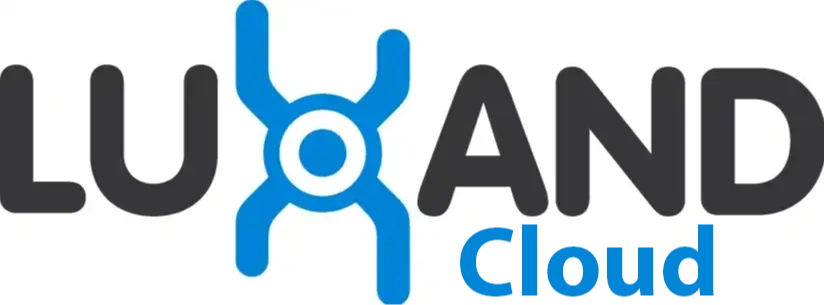
Top Identity Verification Solutions for 2024
In the digital landscape of 2024, when cyber threats and data breaches are becoming a daily headline, businesses and individuals alike are turning to robust identity verification software solutions to protect their operations and personal information. In this blog article, we will examine the top identity verification software options which have raised the bar for security, usability, and innovation. From biometric authentication to AI-powered verification processes, these platforms are not just about confirming identities – they are about building trust in an increasingly interconnected world. Join us as we investigate the features, advantages, and business uses of the top software programs that are revolutionizing identity verification in 2024.
What Is an Identity Verification Solution and Why Is It Important for Businesses
An identity verification solution is a system or service that confirms a person’s identity, typically in a digital context. It is a critical component in the security infrastructure of any modern business, ensuring that the individuals accessing services or data are who they claim to be. This verification procedure can be carried out using a variety of techniques, ranging from conventional ones like security questions and passwords to cutting-edge ones like biometrics and artificial intelligence.
For businesses, the importance of identity verification cannot be overstated. It serves as the first line of defense against a variety of cybercrimes, such as fraud, identity theft, and illegal access to private data. Through precise identity verification of partners, consumers, and staff, companies can safeguard their operations, stay in compliance with laws, and build customer trust. Robust identity verification is crucial for any business that values security and wishes to preserve the integrity of its transactions and interactions in a world where digital interactions are the norm.
Criteria for Evaluating Identity Verification Software
In order to make sure that identity verification software fulfills your company’s requirements, it is crucial to take into account the following criteria.
Security features. Security elements are the foundation of any identity verification program. These should include strong encryption techniques, fraud detection systems, and the capacity to adjust to new threats. The software must be able to safeguard private information, stop illegal access, and guarantee safe and correct user identity verification.
User experience. To make sure that the authentication process does not deter real consumers, a flawless user experience is essential. In order to reduce the time and effort needed for users to verify their identity, the software should be intuitive to use and user-friendly. Adoption rates and consumer satisfaction can rise when strict security measures and user convenience are well-balanced.
Integration capabilities. Any identity verification solution must be able to seamlessly integrate with the existing systems. It should support several platforms and provide APIs so that integrating it into your company’s process is simple.
Cost-effectiveness. Cost should never be an excuse for sacrificing security, but the solution must still generate a positive return on investment. This means assessing not only the initial expenditures but the long-term benefits in terms of decreased fraud, increased productivity, and increased consumer trust.
Compliance with regulations. Lastly, the software must comply with relevant laws and regulations, which can vary by region and industry. This includes standards for data protection, privacy, and specific sector requirements. Compliance helps protect your business from legal repercussions and reinforces your commitment to protecting user data.
By carefully assessing these criteria, businesses can select an identity verification software that not only enhances security but also supports their operational goals and customer experience.
Top 10 Identity Verification Software Solutions for 2024
This section explores the top 10 identity verification software solutions that stand out for their innovative features and robust performance. From blockchain-based security to AI-driven fraud prevention, these platforms are at the forefront of protecting digital identities.
Sumsub
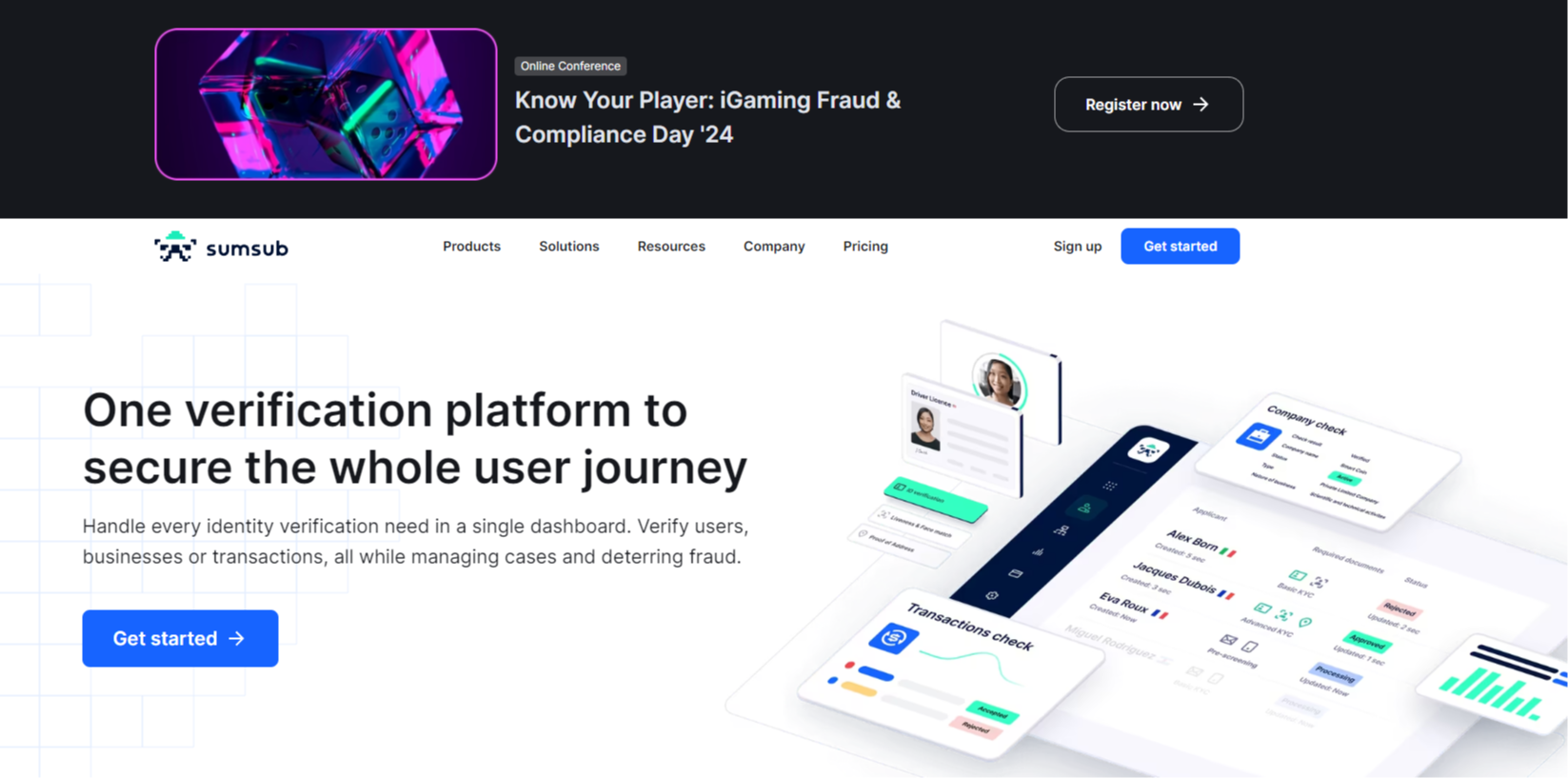
Sumsub is a comprehensive identity verification solution designed to streamline customer onboarding and enhance regulatory compliance. Founded in 2015 and headquartered in London, UK, Sumsub offers a robust suite of services including Know Your Customer (KYC) and Anti-Money Laundering (AML) checks, document verification, biometric authentication, and video KYC. These features enable businesses to verify the identities of their users quickly and accurately, ensuring a secure and seamless onboarding process.
Sumsub stands out for its advanced fraud prevention capabilities, utilizing AI-driven technologies to detect and mitigate fraudulent activities in real-time. This proactive approach helps organizations minimize the risk of fraud while maintaining compliance with global regulations such as GDPR, CCPA, and AMLD5.
The platform is designed to be highly adaptable, supporting a wide range of industries from fintech and banking to e-commerce and gaming. Sumsub’s API integration allows businesses to seamlessly incorporate its verification processes into their existing systems, enhancing operational efficiency and user experience.
Jumio
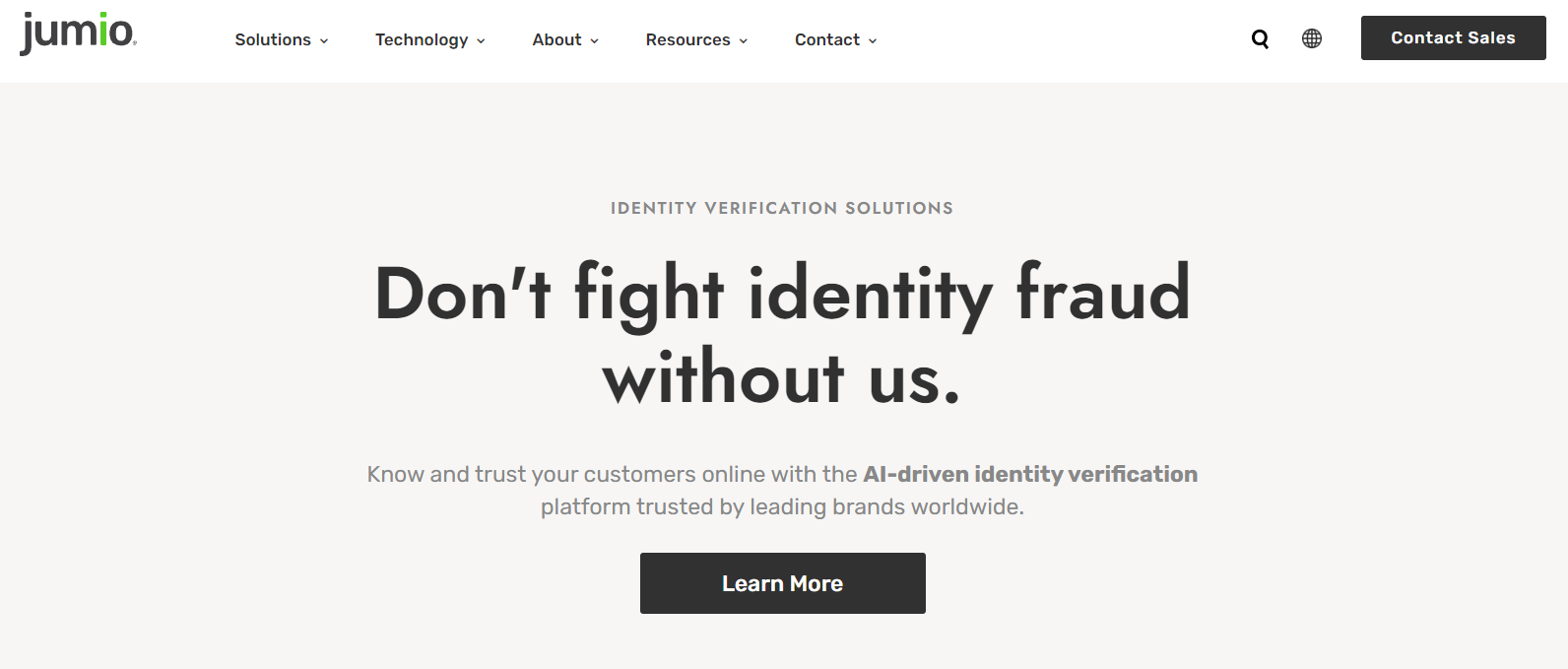
Jumio is known for its all-encompassing identity verification approach. By fusing biometric analysis, official ID verification, and live selfie assessments, Jumio delivers a comprehensive solution that has become a favorite among businesses worldwide. Its potent anti-fraud features and expansive global coverage make it an adaptable option for companies with international target audience.
Jumio leverages artificial intelligence and machine learning to deliver accurate and efficient identity verification, ensuring that businesses can onboard customers quickly and securely. Its suite of services includes document verification, where users can submit passports, driver's licenses, and other identity documents for validation. Additionally, Jumio's biometric capabilities, such as facial recognition, enhance security by verifying that the document's owner is physically present during the verification process.
A standout feature of Jumio is its video verification, which adds an extra layer of security and compliance, particularly useful for industries with stringent regulatory requirements. This feature supports a wide range of use cases, from financial services to the sharing economy, ensuring that all user interactions are secure and compliant with global standards like GDPR, CCPA, and AMLD5.
Onfido
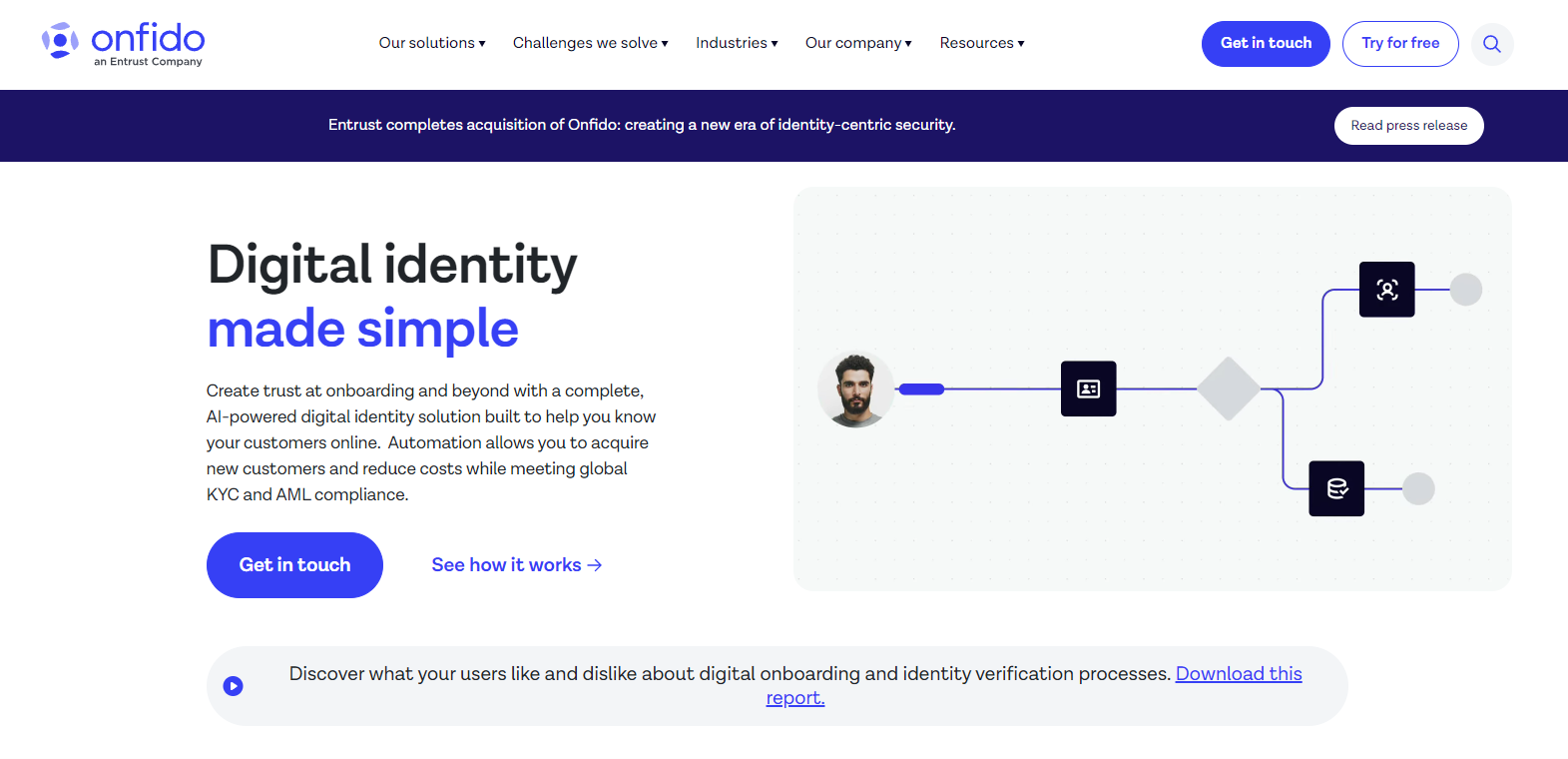
Onfido distinguishes itself with a platform powered by machine learning, offering swift and dependable identity checks. Designed to streamline the user onboarding process, Onfido strikes a balance between speed and thoroughness, making it particularly attractive to businesses with large user bases.
Onfido's document verification capabilities allow users to submit a range of identity documents, such as passports and driver's licenses, which are then analyzed for authenticity and validity. Biometric facial recognition technology ensures that the person presenting the document is indeed its rightful owner, further bolstering the verification process.
One of Onfido's standout features is its ability to conduct video-based identity checks, where users are guided through a live video session to verify their identity in real-time. This method not only enhances security but also provides a more personalized and user-friendly verification experience.
Trulioo
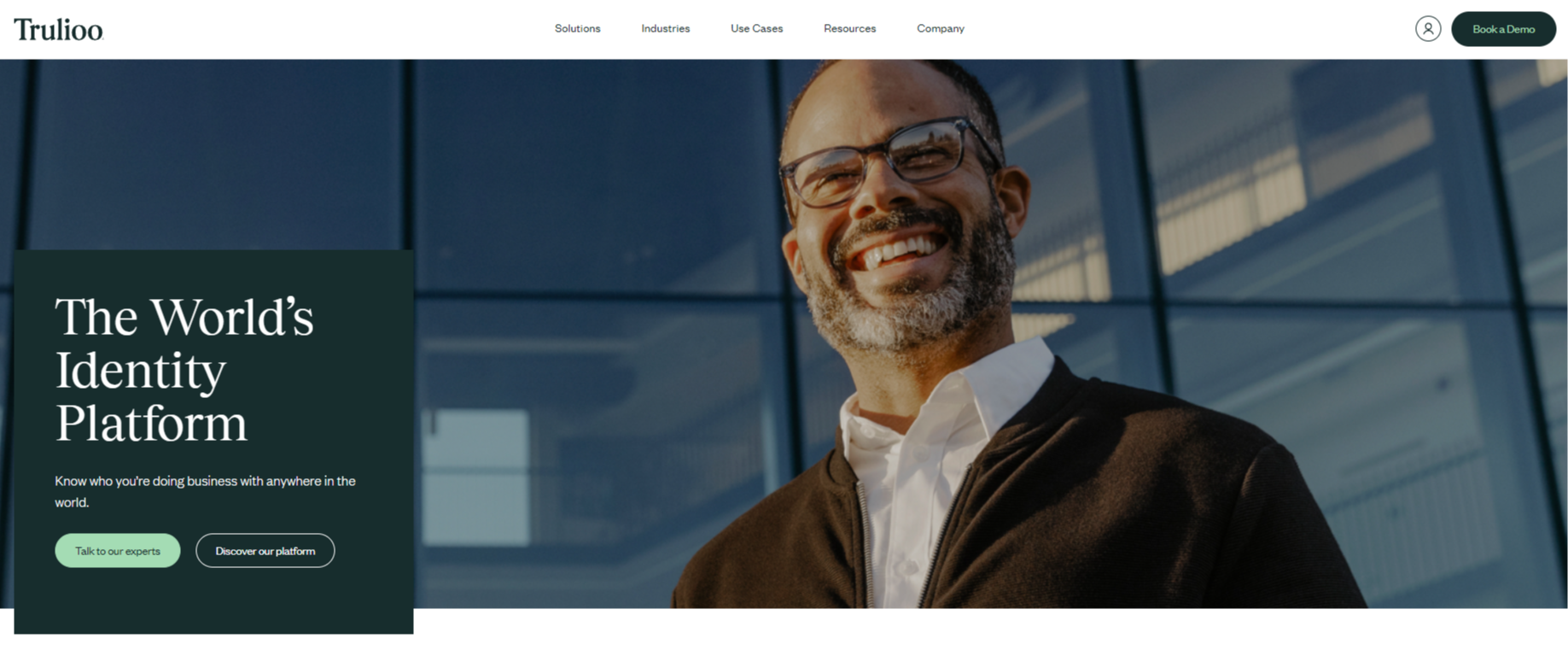
Trulioo presents a formidable solution with its GlobalGateway platform, enabling instantaneous verification of individuals and businesses across the globe. Leveraging an extensive array of data sources, Trulioo excels in cross-border identity verification, a critical feature for global enterprises.
Trulioo's approach to identity verification combines traditional identity data with advanced analytics and machine learning algorithms. This allows businesses to conduct thorough Know Your Customer (KYC) and Anti-Money Laundering (AML) checks in real-time, ensuring regulatory compliance while minimizing fraud risks.
Key features of Trulioo's platform include robust document verification capabilities, where users can submit various forms of identification for validation. Additionally, Trulioo leverages biometric data and behavioral analytics to further enhance the accuracy and security of its verification processes.
ID.me
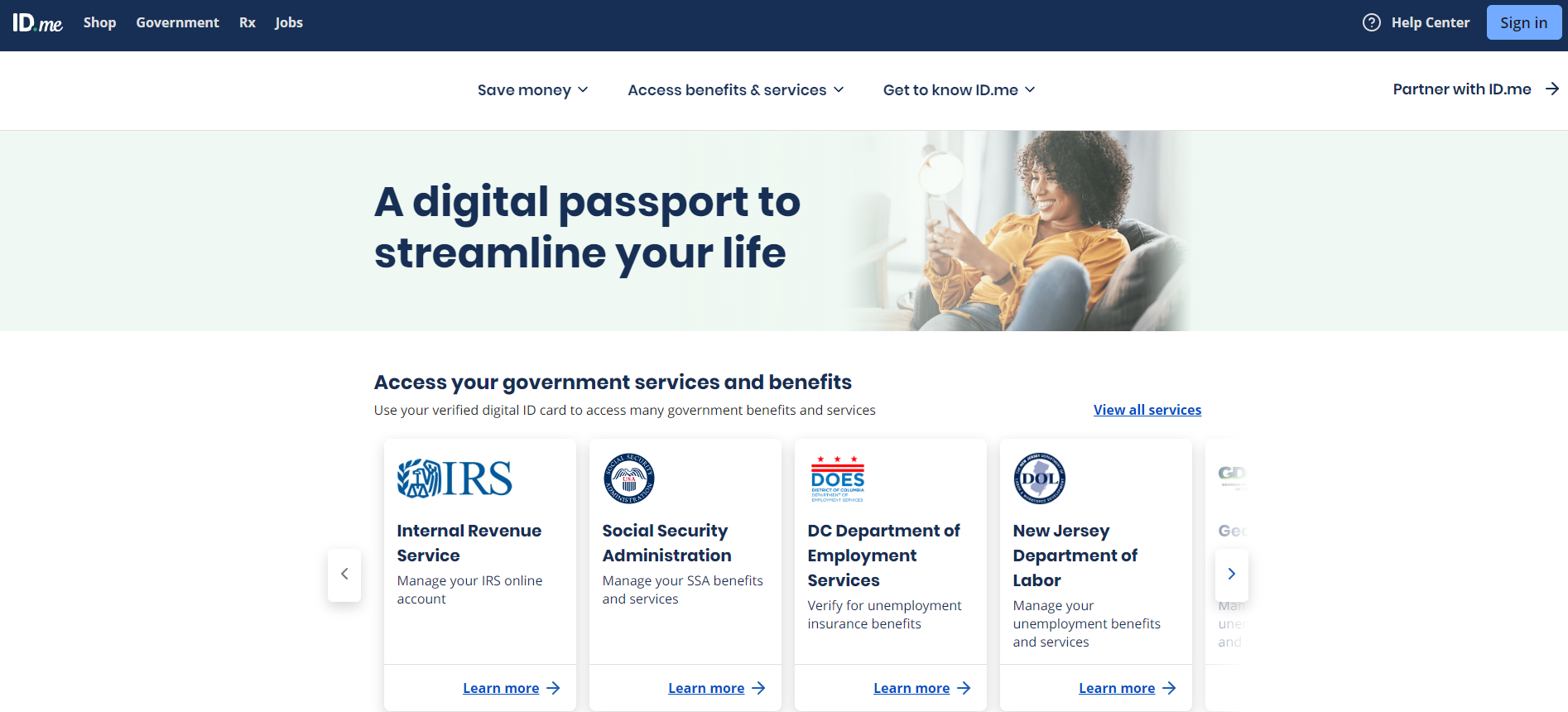
ID.me offers identity verification software specifically crafted for the government and healthcare sectors, providing secure and easy access to various services. Renowned for its meticulous handling of sensitive data, ID.me ensures compliance and fosters user trust.
At the heart of ID.me's offering is its advanced authentication technology, which utilizes a combination of biometric recognition, identity document verification, and knowledge-based authentication (KBA) to verify users' identities accurately. This multi-layered approach ensures that only legitimate users gain access to sensitive information or services.
One of ID.me's standout features is its Identity Gateway, which provides a single point of access for individuals to verify their identities once and gain secure access to multiple online services and benefits. This streamlined approach enhances user convenience while maintaining high levels of security.
Socure
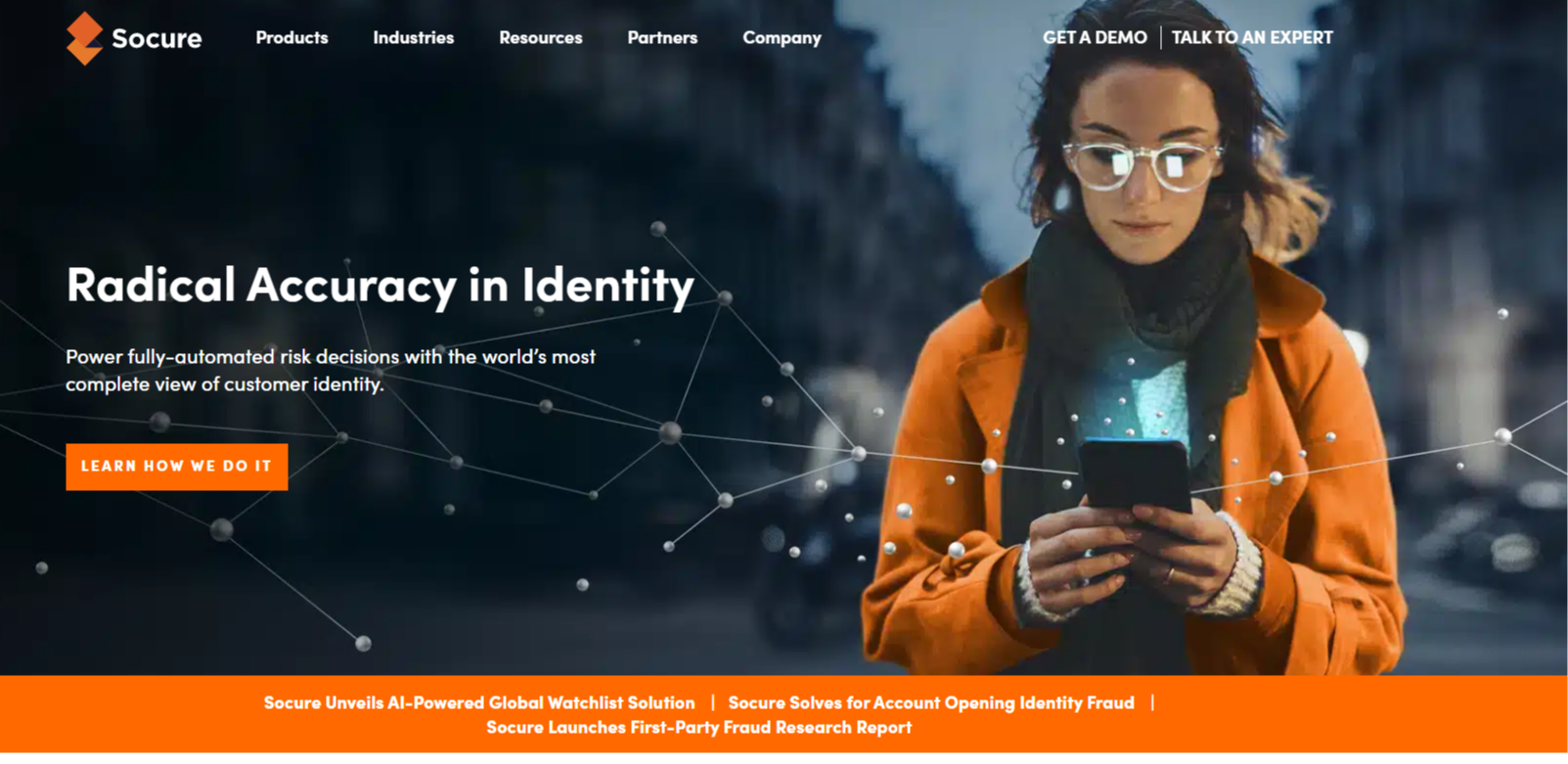
Socure leads the way in predictive analytics for identity verification, employing artificial intelligence to thwart fraudulent activities. Its predictive scoring model boasts remarkable accuracy, positioning it as a preferred option for financial institutions aiming to reduce risk.
One of Socure’s key strengths lies in its ability to detect fraudulent activities in real-time, helping businesses mitigate risks and comply with stringent regulatory requirements such as GDPR and CCPA. By continuously updating its algorithms and adapting to new fraud patterns, Socure remains at the forefront of identity verification technology.
Veriff
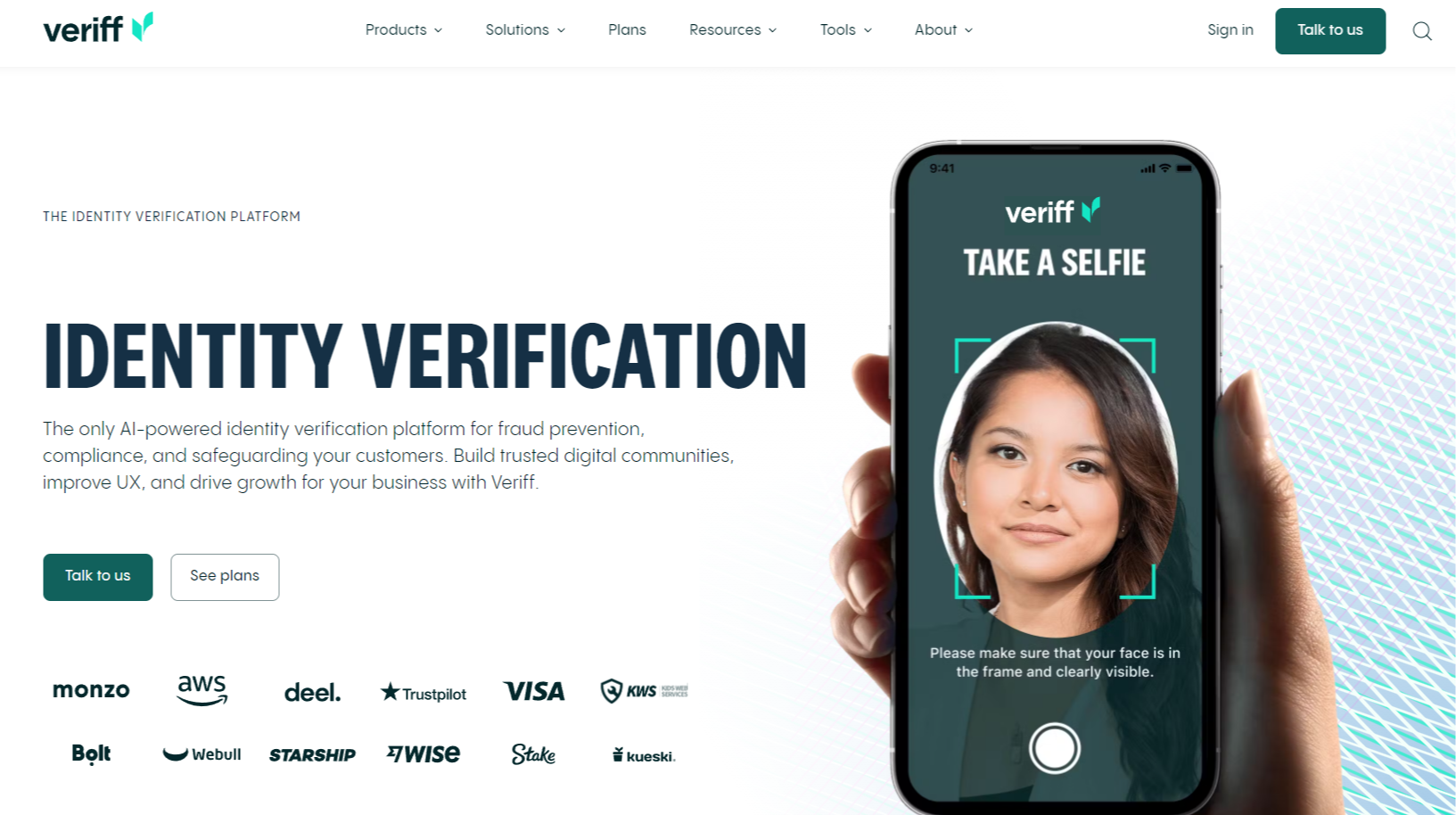
Veriff gains recognition for its smart video-based verification method, adept at spotting irregularities and confirming the authenticity of individuals engaging in transactions. This focus on video analytics adds an extra security layer, especially valuable for transactions of a larger scale.
Veriff's document verification capabilities enable users to securely upload and validate a range of identification documents, including passports and driver's licenses. Biometric analysis further enhances security by verifying the user's identity through facial recognition, ensuring that the person presenting the document is indeed its rightful owner. Veriff's commitment to data privacy and regulatory compliance, including adherence to GDPR and CCPA guidelines, underscores its dedication to protecting user information.
IDology
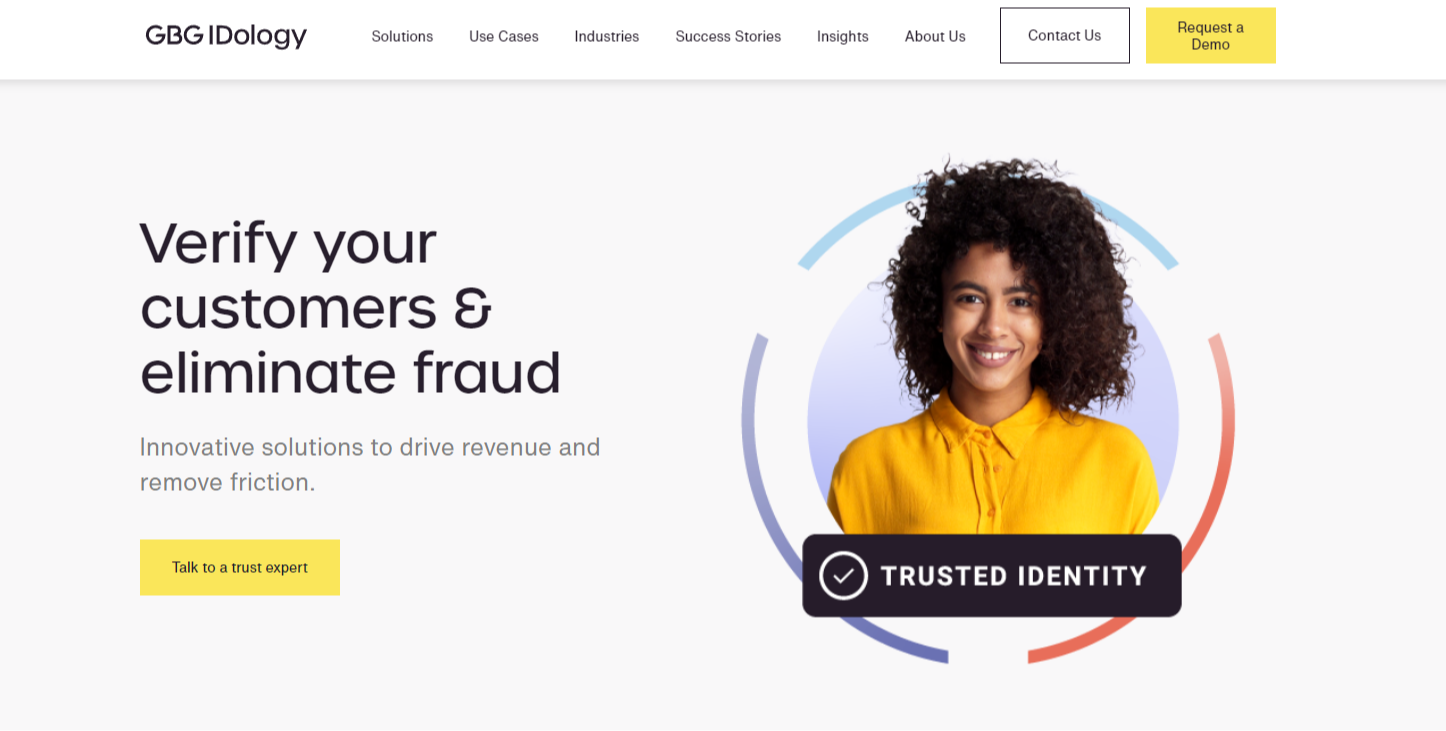
IDology shows high adaptability in the identity verification sector. It offers businesses the flexibility to customize their verification processes, catering to a diverse array of industry needs. The platform’s prowess in age verification and fraud prevention is particularly beneficial for sectors such as e-commerce and online gaming, where verifying the user’s age and ensuring transactional integrity are paramount.
At the heart of IDology's offerings is its ExpectID platform, which leverages a blend of identity verification and fraud prevention solutions. This platform integrates multiple layers of identity verification techniques, including real-time data analysis, identity document verification, and biometric authentication. These methods ensure that businesses can authenticate their customers' identities accurately while adhering to stringent regulatory requirements such as GDPR and CCPA.
Moreover, IDology excels in fraud prevention with advanced analytics and machine learning capabilities that detect suspicious behaviors and patterns in real-time. This proactive approach helps businesses mitigate fraud risks effectively while reducing false positives that can impact genuine customer interactions.
Mitek
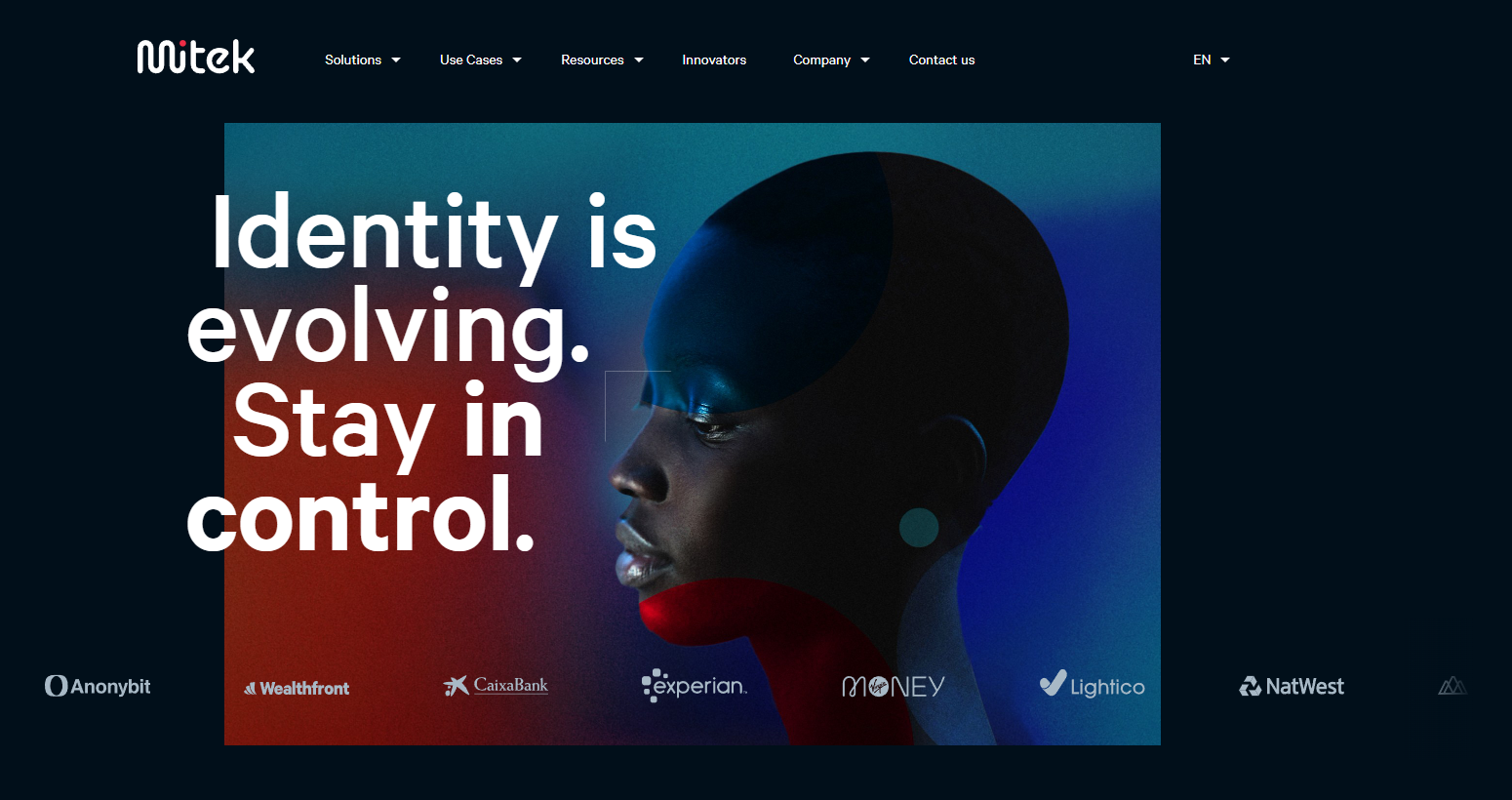
Mitek understands that smartphones are the hubs of modern life. By adopting a mobile-first approach, Mitek has harnessed the nature of mobile technology to offer user authentication that is not only secure but also intuitive. This strategy is crucial for businesses aiming to deliver a frictionless mobile user experience without sacrificing the high-security standards that customers expect.
Mitek's technology stands out for its accuracy and ease of use, enabling users to capture and verify identity documents simply by using their mobile devices. The platform's biometric capabilities enhance security by verifying that the person presenting the document matches the biometric data captured during the verification process.
Beyond document verification, Mitek offers additional features such as facial comparison and liveness detection, which further enhance the security and reliability of its identity verification services.
Pipl
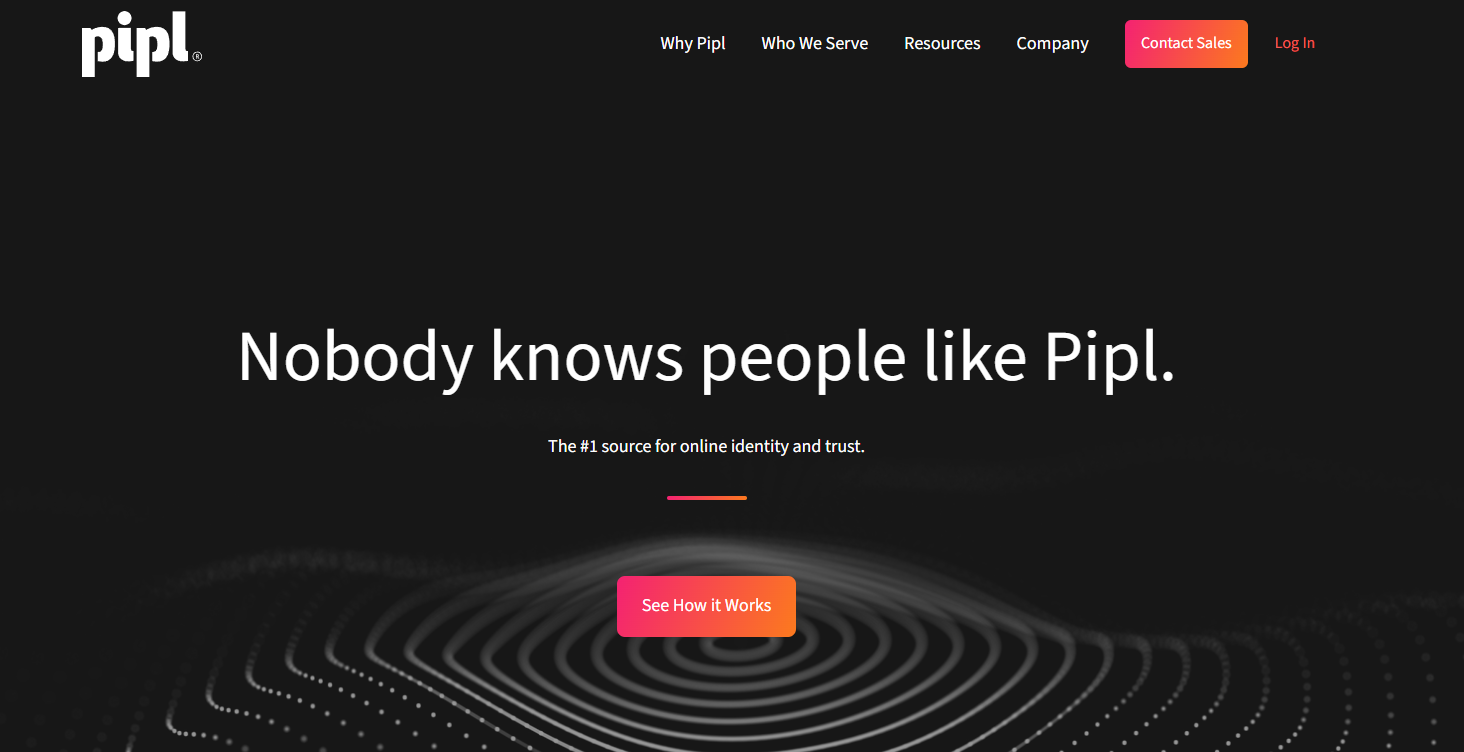
At the core of Pipl's capabilities is its powerful search engine, which accesses billions of online and offline records to compile accurate and up-to-date information about individuals. This includes social profiles, contact details, professional histories, and more, providing businesses with a holistic view of their customers or users.
Pipl's identity verification process is centered around verifying identities through cross-referencing multiple data points, ensuring high accuracy and reliability. Businesses can utilize Pipl's services for background checks, fraud prevention, and customer due diligence, among other applications.
One of Pipl's standout features is its ability to perform deep web searches, accessing data that may not be readily available through conventional search engines. This capability enhances the depth and scope of identity verification, particularly useful for verifying individuals with limited digital footprints or presence.
Comparison Table of Top Identity Verification Solutions for 2024
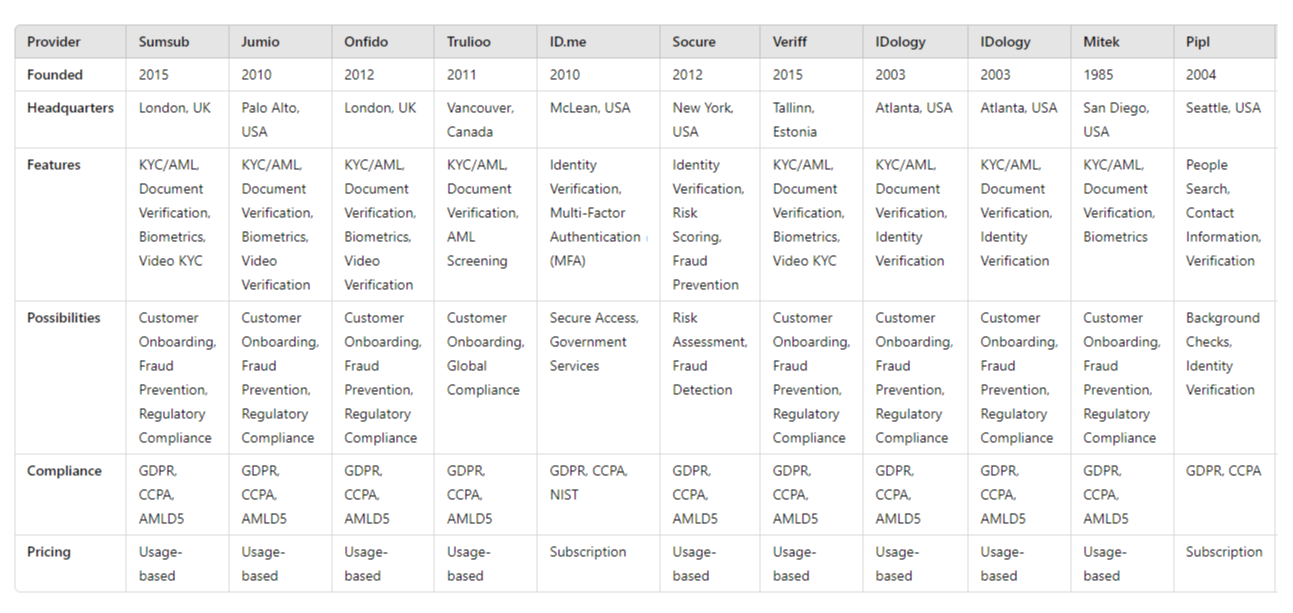
Choosing the Right Identity Verification Software for Your Needs
The process of choosing the right identity verification software is crucial, as it directly impacts the security posture and operational fluency of your enterprise. This decision demands a meticulous evaluation of your unique needs, encompassing the breadth of your business activities, the types of transactions you handle, and the specific legal compliances you must adhere to.
The optimal software will have to fit into your current technological ecosystem without friction and also enhance the user experience with its intuitive design, all while offering a superior level of security that surpasses conventional benchmarks.
In this quest for the perfect match, the goal is to strike a balance between stringent security protocols and user accessibility. The verification process should be comprehensive, yet not deter users with its complexity. Choosing wisely means investing in a future where security and convenience coexist.
Ultimately, the software you choose becomes more than just a tool; it becomes the cornerstone of your cybersecurity infrastructure. It is a testament to your commitment to safeguarding user data and preserving the safety of digital transactions.
Conclusion
In 2024, the top identity verification software solutions have redefined the benchmarks for digital security and user authentication. These platforms incorporate cutting-edge technologies to provide seamless and secure verification processes. As we welcome a future in which digital identities play a bigger role in our everyday transactions, these software programs will remain indispensable in protecting our online interactions and personal information from the ever-changing cyber risks.
